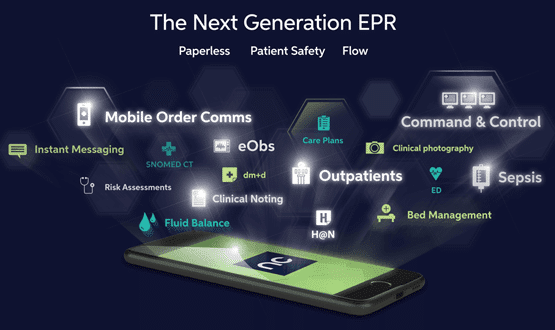Europe making progress to eHospitals
- 17 March 2005
A major new survey of IT use in almost 900 European hospitals, including 73 in the UK, has found that their number one priority for IT investment is in document management systems, to help manage paper medical records and as a step towards integrated electronic medical records.
The research, which was carried out by Silicon Bridge Research and Deloitte as part of the Health informatics Network Europe, examined what hospitals purchasing intentions are over the next five years.
While virtually all hospitals have patient administration systems (PAS), very few yet have ordering systems in place and only a handful have implemented full e-prescribing. Murray Bywater, director of Silicon Bridge Research, told E-Health insider: "The penetration of PAS systems across Europe is almost 100%, it’s proven and trusted technology, but the real challenge remains e-prescribing."
According to Bywater the survey indicates that document management systems – to handle paper-based patient records – currently forms the biggest market opportunity in the European hospital sector, measured by comparing what hospitals purchasing intentions are against what they have actually implemented.
"Document management is the biggest opportunity across Europe, but it’s not actually a core service within the NHS National Programme for IT," said Bywater. The use of document management systems in England stands at half the European average.
With the study showing that 75% of hospital patient records are still paper-based it appears that NPfIT is taking a very different route to developing advanced medical records than the rest of Europe. "Our reading is that document management is not optional but essential in moving to fully integrated electronic patient records, you can’t just do it in one leap and very few hospitals have yet achieved it," said Bywater.
Other key market opportunities identified across Europe were for Picture Archiving and Communication systems (PACS) and Electronic Transfer of Prescriptions – both areas the NPfIT now counts as core services.
The survey results categorise how far European hospitals have got in developing a fully integrated electronic patient record system on a four step scale:
- Level one begins PAS and departmental systems;
- Level two is a common master patient index and integration;
- Level three is advanced medical records with clinical ordering (order communications);
- Level four ends with full e-prescribing with decision support.
While almost all European hospitals have reached level one and most had reached level two, only 18.2% had reached level three and a mere 2.1% reached level four. For England the figures for level three electronic records were well below the European average with just 7.7% having advanced medical records with ordering.
Bywater said that the low penetration of order communications was partly because it had could not be done as a ‘big bang’ due to its inherent difficulty: "For order communications you must have a more formalised way of working and change the way clinicians work. It’s a real challenge for hospital CEOs to improve workflows and standardise processes."
The Silicon Bridge director said that introducing full e-prescribing was every bit as challenging. "Full hospital e-prescribing means that the drug is checked, the dose is checked, the patient is checked as are potential contraindications and this is all tied up with decision support."
The survey indicates that most hospitals are still starting from scratch on e-prescribing. Bywater said there it was uncertain whether full hospital e-prescribing was included in NPfIT contracts. "It’s not clear whether they just mean patients’ take home prescriptions being sent to a pharmacy. If they are talking about full e-prescribing in an acute setting that’s an order of magnitude more complicated."
He added that immediate challenges facing English hospitals aiming to get to advanced electronic medical records must be to implement order communications and document management. He questioned the wisdom of instead focusing on swapping out first PAS systems – which appears to be the policy of the NPfIT.
"Is it really feasible to consider swapping all of these systems out? Swapping out a PAS system is disruptive, expensive and time consuming, and people are usually dissatisfied at the end of it," said Bywater, who noted that it was not the route that most hospitals across Europe were pursuing to develop advanced electronic medical records.
Murray Bywater will be presenting the results of the HINE 2004 hospital survey at the ‘Benchmarking progress towards eHospitals in the UK and Ireland’ session at Healthcare Computing 2005. The session is in the main auditorium at 9.00am on Wenesday, 23 March.




